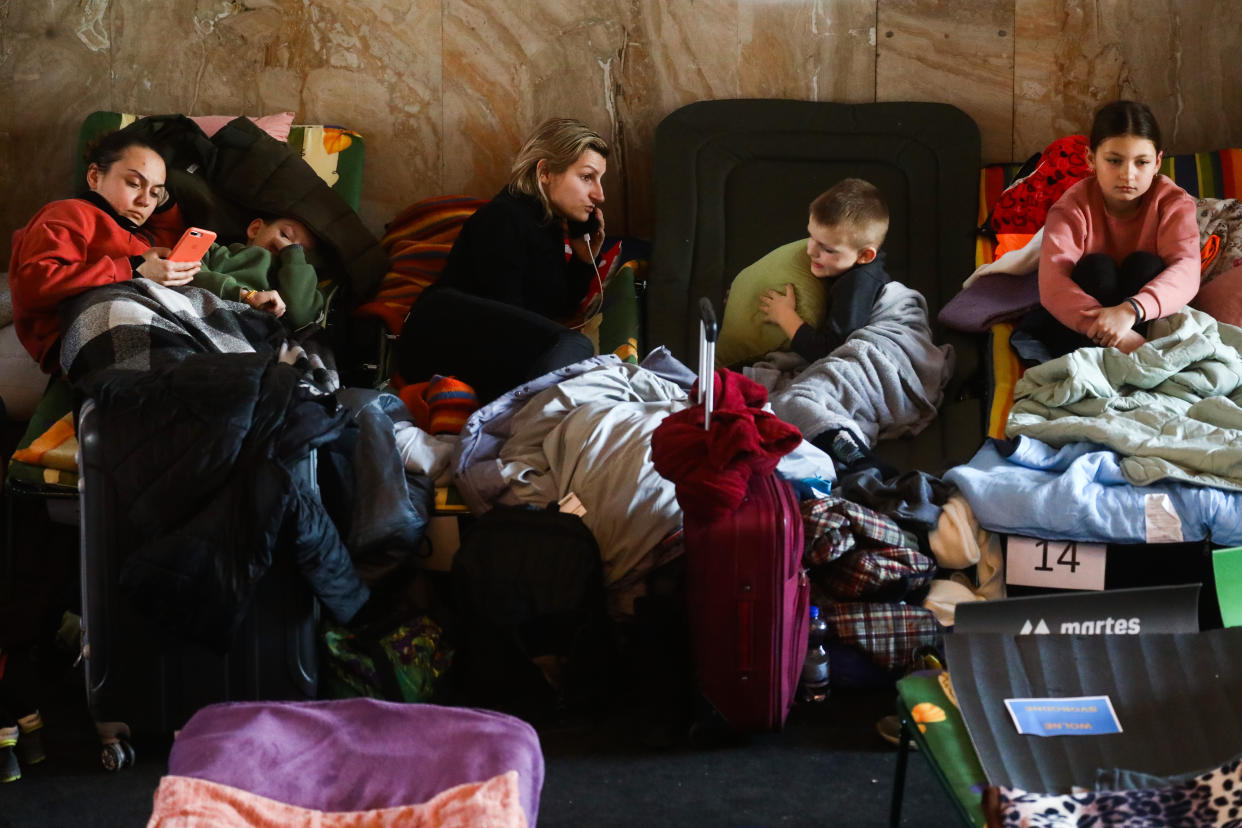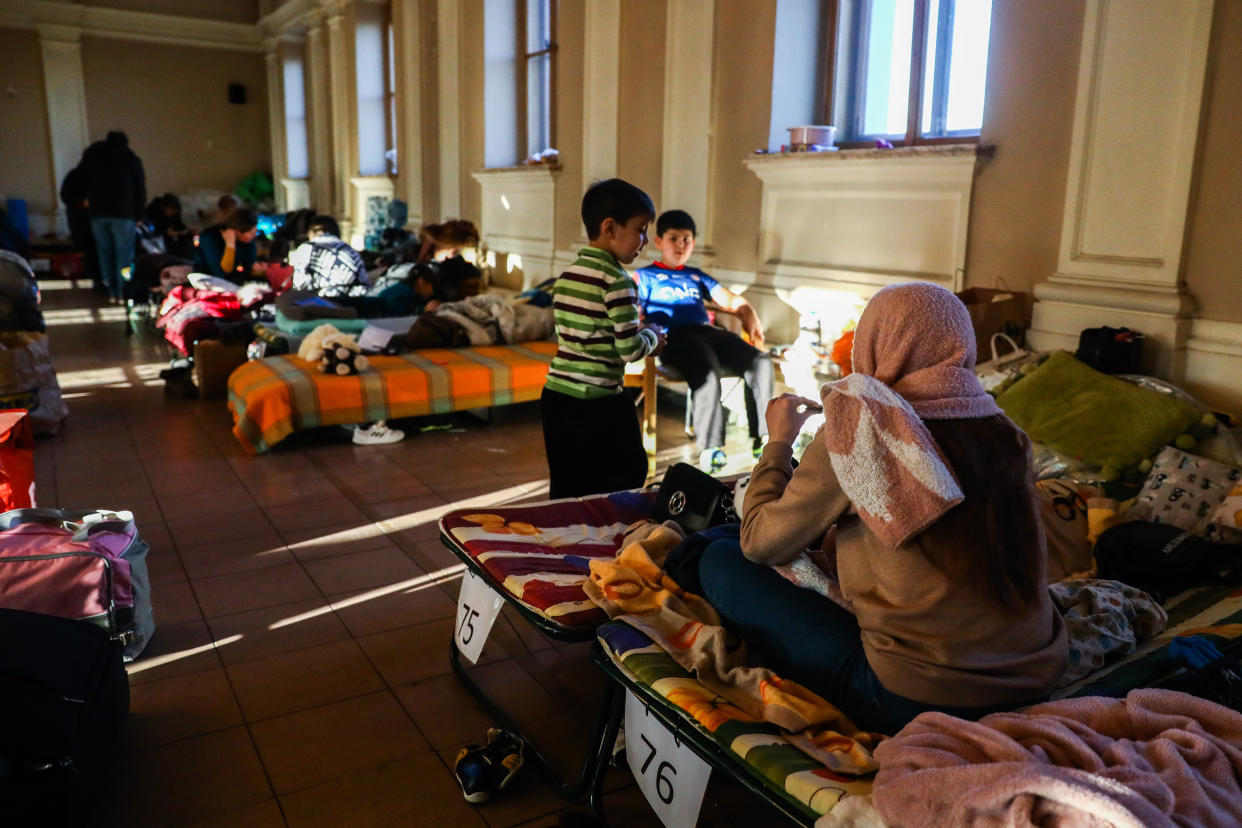Poland welcomes 1.5 million Ukrainian refugees fleeing Russia's invasion
Of the 2.5 million Ukrainian refugees to have fled Russia’s invasion of their homeland for neighboring countries, 1.5 million have sought safety in Poland.
With the war dragging on, more refugees arrive every day, and U.S. Ambassador to Poland Mark Brzezinski told Yahoo News that the response from the Polish people has been “beautiful.”
“I've seen ordinary people in Poland doing extraordinary things,” Brzezinski said in an exclusive interview on the Yahoo News “Skullduggery” podcast. “To me, that's the most beautiful thing you can say about humanity, about someone who maybe themselves doesn't have a job, but they jump in their car, organize with friends to go help someone who they don't know and they probably will not know in the future. … That's happening thousands upon thousands of times.”
Across Poland, Brzezinski said, there has been an outpouring of support from both the government and ordinary citizens who have mobilized to help. Many people have opened their own homes to accommodate the new arrivals, while others have volunteered to drive refugees arriving at the border to shelters or other accommodations.
“These folks are running toward the fire, not away from the fire, to help those fleeing the fire,” the ambassador told Yahoo News, adding that the way the Polish people have come together to help their neighbors is “a great story out of a terrible story.”
Businesses have stepped up too. Bus companies have been offering free rides, and some hotels have pledged to provide temporary free housing for the refugees. But there are also growing concerns over whether Poland can continue to cope with the influx.
“We are dealing with the greatest migration crisis in the history of Europe since World War II. ... The situation is getting more and more difficult every day,” Warsaw Mayor Rafal Trzaskowski said Friday, adding that a proper system needs to be implemented to help his city deal with the situation.

Many Ukrainian refugees pass through Warsaw as they make their way to other parts of the country, but approximately 230,000 have decided to settle in the Polish capital. Housing all of them has become an issue.
“The mayor of this city, Rafal Trzaskowski, has dedicated one train station, Zachodnia Warszawa, and the stadium here, to receive refugees to stay a little longer,” Brzezinski said. “But beyond that the question is, can they be placed in apartments? Can they be placed in houses?”
According to the Warsaw mayor, when the war began two weeks ago, 95% of Ukrainian refugees arriving in the city were people who already had friends or family there and were able to stay with them. Today that group is 70% of the new arrivals, which means that 30% of the refugees “need a roof over their heads” in addition to other support, Trzaskowski said Friday.
Brzezinski, who has visited various crossing points of the Polish-Ukrainian border, said many of the refugees he has interacted with have expressed a desire to return home.
“There's a hope that this will somehow turn in Ukraine's favor and they will be able to get home within a couple months or within this year,” he said, adding that for this reason many want to stay close to the Ukrainian border.

Many others, Brzezinski said, will want to stay and settle in Poland because both countries have shared history and culture. Their language and food are similar, he said, and many of them already have family working in Poland.
Some studies have shown that many refugees in these situations ultimately may choose not to return home. According to a study conducted by the RAND Corporation, a nonprofit think tank, only 30% of refugees on average have returned to their home countries within 10 years after a conflict’s end.
With no sign that the war is stopping anytime soon, experts say Poland and other neighboring countries will soon need assistance from the international community to cope with the influx of refugees. Many of those countries have started to get that much-needed help.
“It is an amazing movement of people,” Brzezinski said. “We don't know what Putin will do next. We don't know how many refugees will [continue to] come to Poland.”
